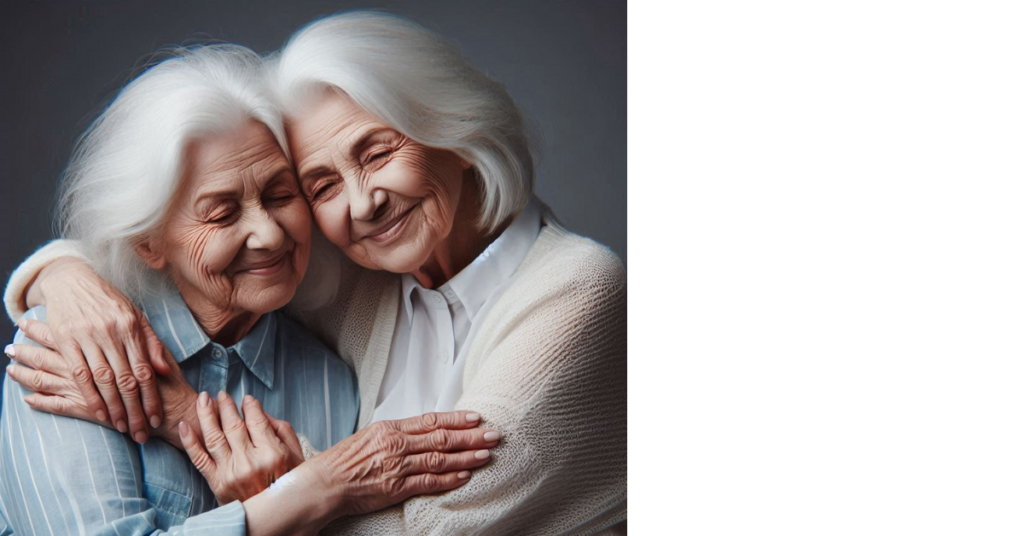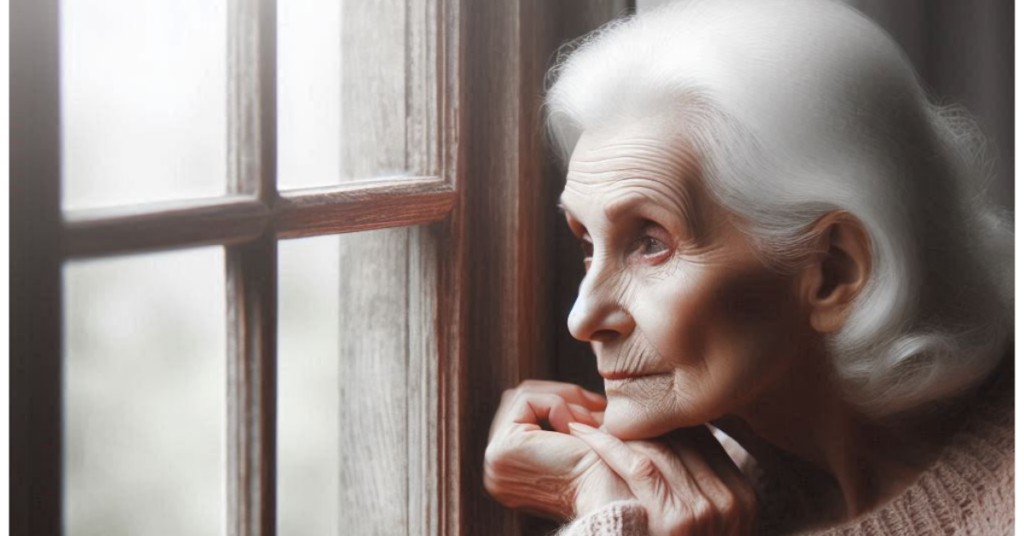The Impact of Touch Deprivation on Seniors: Nurturing Connection and Well-Being
Claire Mendelsohn, Founder of Cuddle Professionals International
According to experts, people can experience touch starvation. “Human beings are uniquely wired to crave touch and to be touched,” says registered psychotherapist Joshua Peters. Being held is one of the first ways we communicate feeling loved and connecting with others. Touch reminds us that we are lovable and safe.
The desire for touch may be felt more intensely by older adults. A study published in Nursing Older People suggests that touch is the most vital non-verbal behaviour in the nursing profession when treating older patients. In old age, tactile hunger becomes more powerful, as it is often the only sensuous experience that remains. Unfortunately, touch deprivation was a growing issue even before the pandemic. Research by Dr Tiffany Fielding shows that people were already touching less frequently – only 4% of the time – before COVID-19. With the pandemic exacerbating this trend, we must recognise the impact on our elderly population. As the Founder of Cuddle Professionals International, I see the debilitating effects of skin hunger in our senior population at first hand, and it breaks my heart.
In a world where social distancing has become the norm, touch – the most primal form of human connection – has been relegated to the sidelines. For seniors, this shift is particularly poignant. As we explore the impact of touch deprivation on older adults, we uncover its far-reaching effects on emotional well-being, physical health, cognitive function, and overall quality of life.
Touch deprivation can impact our seniors on many levels:
1. Emotional Well-Being
The Language of Touch
Touch speaks volumes. It conveys love, comfort, and safety. For seniors, who often face isolation due to health conditions or living arrangements, touch becomes a lifeline. A gentle hand on the shoulder or a warm hug can alleviate feelings of loneliness and anxiety.
2. Physical Health
Oxytocin and Stress Reduction
Physical touch triggers the release of oxytocin – the “bonding hormone.” Oxytocin promotes stress reduction, lowers blood pressure, and enhances immune function. Seniors deprived of touch may experience heightened stress levels and weakened immune systems.
Circulation and Pain Relief
Touch stimulates blood circulation and eases muscle tension. Without regular touch, seniors may suffer from stiffness and discomfort. Simple gestures like hand-holding or back rubs can improve physical well-being.
3. Cognitive Function
Sensory Receptors and Memory
Our skin houses sensory receptors that play a role in cognitive function. Touch deprivation can lead to cognitive decline and impaired memory. Seniors who receive regular touch tend to have better cognitive abilities and improved mood.
The Power of a Hug
A hug isn’t just a gesture; it’s a cognitive boost. When we embrace someone, our brains release endorphins, enhancing mood and reducing stress. Seniors, especially those living alone, benefit from these positive effects.

4. Social Connection
Isolation and Loneliness
Seniors often face isolation due to mobility issues, bereavement, or limited social interactions. Touch fosters social connection and reinforcing a sense of belonging. Even virtual hugs or friendly pats on video calls can bridge the gap.
Caregivers and Family Members
Caregivers and family play a crucial role. They must recognise the importance of touch and find safe ways to provide it. Whether through hand massages, gentle strokes, or sitting close, these gestures matter.
5. Quality of Life
Feeling Connected
Touch deprivation affects overall quality of life. Seniors who lack touch may feel disconnected from the world. Prioritising meaningful touch within robust boundaries and consent guidelines can significantly improve their well-being.
As we navigate a touch-starved world, let’s remember our seniors. A touch, however small, can make a world of difference. Let’s ensure that no one feels out of reach, even when physical distance separates us. Touch deprivation among seniors is not merely a physical absence; it’s an emotional hunger. Let’s nurture connection with our elders, one touch at a time.
References
Richard J. Touch Deprivation And What It Means For The Elderly. Custodia Home Management, September 2023.
Smith K. Supporting Sensory Wellness in Older Adults. National Council on Aging (NCOA), February 2024.
No Greater Loss: Sensory Deprivation and the Elderly. Health Plexus.
About the Author
Claire Mendelsohn is a trail-blazing touch therapy and wellness expert who has been at the forefront of the rapidly expanding sector of cuddle therapy since 2015. We are proud that Claire has been a Training School Member of The CMA for many years! Claire has grown her organisation Cuddle Professionals International into the go-to industry membership body for the training and certification of platonic touch therapists. Her mission is to promote professional cuddling as a valuable holistic therapy modality, to clarify what it is – and, as importantly, what it isn’t – and to educate by demonstrating that touch is vital to our health and well-being in an increasingly disconnected and medically-ailing society.


